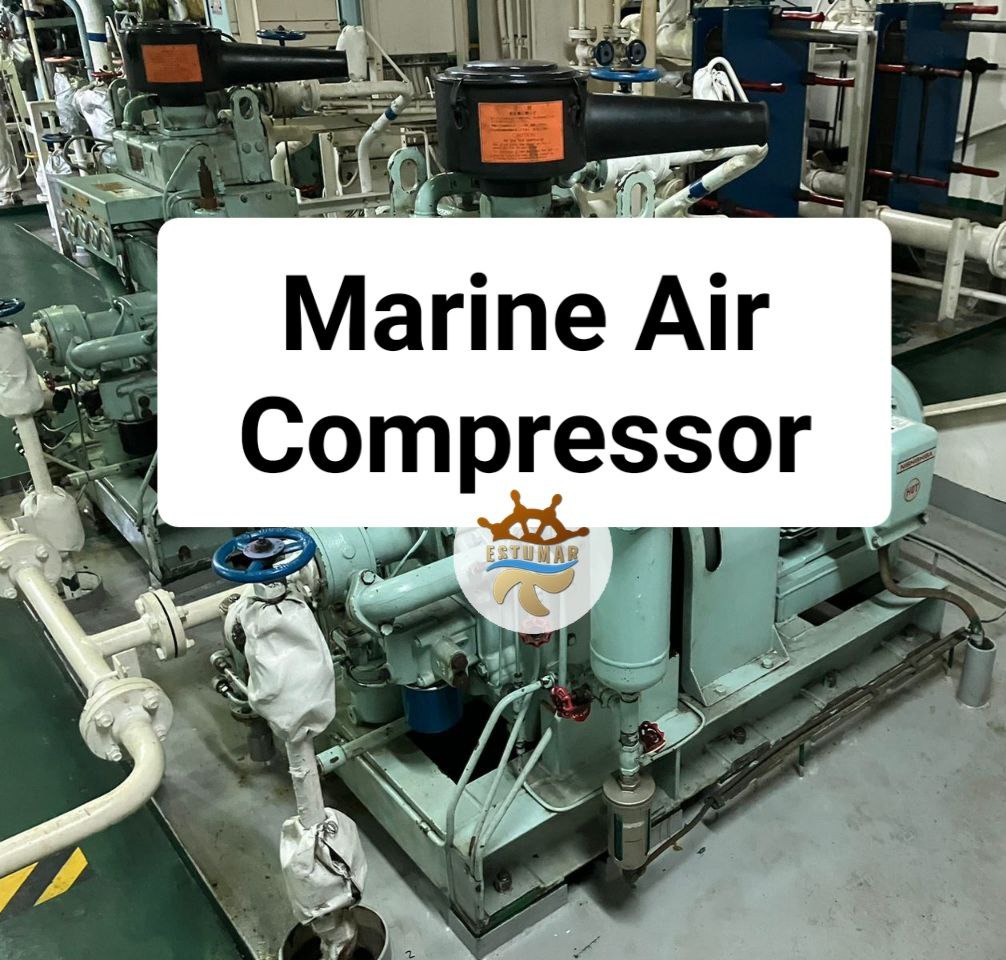
Marine air compressors play a vital role in the functioning of ships, providing the necessary air pressure for a wide range of tasks. These powerful machines are used across all types of vessels, contributing to essential operations that keep ships running smoothly.
Understanding the Role of Marine Air Compressors.
Marine air compressors, often overlooked but essential components, serve a multifaceted purpose. They work by decreasing air volume while increasing its energetic potential, delivering additional power to various onboard tasks. A ship's air compressor maintains the overall functionality of the vessel, from straightforward duties like filter cleaning and drying to the more critical tasks of starting auxiliary and main engines.
Built to Withstand Harsh Conditions.
Marine air compressors are constructed from sturdy materials that can withstand the demanding conditions of life at sea without warping. It is critical that these machines maintain their integrity, as using subpar air compressors could lead to device failure and even pose safety hazards.
How Air Compressors Function.
The fundamental principle behind air compressors is the compression of gas to increase its pressure while storing the compressed gas in a solid container or tank, typically equipped with pressure gauges and safety mechanisms. Compressors come in various types, including rotating, reciprocating, centrifugal, and screw-based designs.
Reciprocating compressors, similar in construction to internal combustion engines, feature a piston and cylinder arrangement. They incorporate inlet and outlet valves for normal air entry and the release of compressed air, along with other components like connecting rods and crankshafts. The more power a compressor needs to deliver, the greater the number of cylinders it typically possesses.
Diverse Applications on Ships.
Marine air compressors are versatile tools that serve multiple functions on ships, depending on their location. They are generally categorized into four main types:
- Main;
- Deck;
- Emergency;
- Topping Up.
Main Marine Air Compressor.
The primary marine air compressor serves as the power source for initiating both primary and auxiliary engines. It stores pressurized air, which is released to start the engines. Due to the significant power required for this task, the main marine air compressor typically boasts high capacity.
Deck Marine Air Compressor.
Deck marine air compressors are designed to be compact and portable, ensuring maximum mobility. This flexibility allows them to fulfill various functions on the deck, such as operating power tools for minor repairs or handling cleaning and sanitation tasks. In emergency situations on the deck, like fires, these compressors play a critical role in operating fire pumps, responding swiftly to maintain ship and crew safety.
Emergency Marine Air Compressor.
Emergency marine air compressors serve as backup power sources in case of power failures. They provide the necessary power to operate primary and auxiliary engines during potential power outages. Having at least one emergency air compressor onboard is essential to keep the ship's functionality intact.
Topping Up Marine Air Compressor.
Topping up marine air compressors are employed to compensate for any existing or potential leaks within a system. These compressors are connected to devices that monitor the system's current pressure. If the pressure falls below a specified level, the topping up marine air compressor can restore it to the desired level.
Troubleshooting Marine Air Compressors.
The marine air compressor system used onboard is of paramount importance to marine engineers, as it plays a crucial role in a ship's operation. Maintaining various components of the compressed air system, including compressors, pipelines, and air bottles, is vital.
To effectively troubleshoot common problems with air compressors, it is essential to understand all aspects of the system. Comprehensive checks should be conducted before operating the compressor. As a marine engineer, being able to identify and address common issues associated with marine air compressors is imperative.
Here are some common troubleshooting points for marine air compressors:
- Low Compressor Capacity.
Low compressor capacity is a prevalent issue, often resulting from prolonged operation without meeting air demand. Possible reasons for this problem include:
- Leakage in discharge and suction valves.
- Faults or leaks in the unloader.
- Relief valve leaks.
- Increased bumping clearance.
- Incorrect compressor auto cut-in and cut-out settings (set too close).
- Oil Carry Over in Air.
If the compressed air contains oil, it could be due to:
- Oil Water Separator is not working correctly hence oil is being carried to the air receiver;
- The cylinder lubrication is adjusted at high quantity, leading to carryover of oil with air;
- The auto drain is malfunctioning.
- Excessive Vibration and Noise.
Excessive noise and vibration from the compressor may be attributed to:
- Loose pulley, flywheel, belt, belt guard, cooler, clamps or accessories;
- Lack of oil in the crankcase;
- Piston hitting the valve plate i.e reduced bumping clearance;
- Compressor holding down bolts are loose;
- Compressor foundation chocks have worn out.
- Overheating of Discharged Air
Overheating of discharged compressed air can be due to:
- Clogged or dirty intercooler tubes.
- Reduced or insufficient cooling water pump capacity.
- Hot atmospheric air at the compressor's air suction.
- Lack of forced ventilation for fresh air near the compressor.
- Damaged head gasket.
- Clogged air suction filter.
- Leaking valves in the 1st or 2nd stage.
- Milky Oil in the Crankcase.
The presence of milky-colored oil in the crankcase may result from:
- Water leakage from the cylinder liner or jacket.
- Exceeded oil running hours.
These are some of the most common issues encountered with continuously running air compressors onboard ships. Understanding these problems and their possible causes is crucial for marine engineers to ensure the smooth operation of marine air compressors.
- Etiquetas:
- Estabilidad
- Seguridad
- Seguridad
- Riesgo
- Competencia
Comentarios